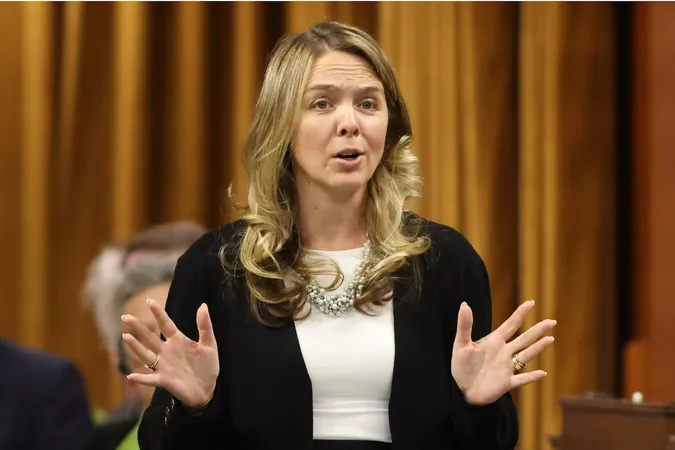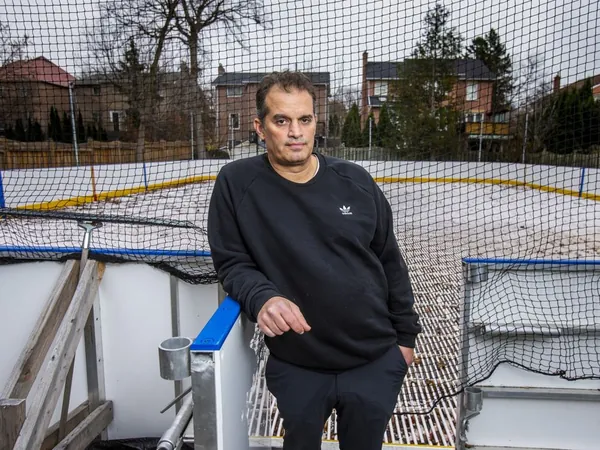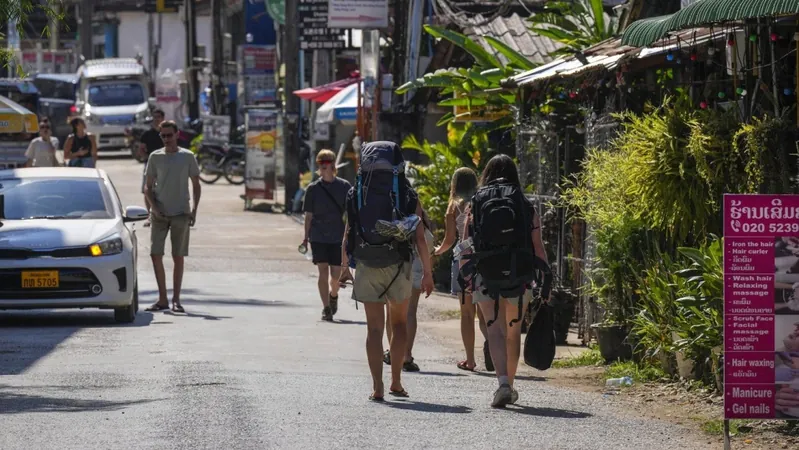
Canadian Cities Race Against Time to Create Temporary Housing for Refugees Amid Surging Numbers
2024-11-20
Author: Jacob
Introduction
As Canada experiences a dramatic spike in the influx of refugees and asylum seekers, several cities, including Ottawa, are urgently crafting temporary housing solutions. This initiative has become imperative as communities face unprecedented demands on their social services.
Ottawa's Response
In a bid to address this growing crisis, Ottawa is spearheading the construction of a unique facility known as a "sprung structure." This design will not only function as a temporary shelter but will also serve as a central hub for settlement services, including language and employment training for newcomers. The goal is to provide a short-term sanctuary for refugees in their first few weeks in the city before transitioning them to permanent housing options within Ottawa's settlement framework.
Controversy Over Proposed Sites
Two potential sites have been identified in Ottawa's west end for these innovative facilities; however, choosing these locations has sparked considerable controversy. Many residents voiced their concerns through rallies, criticizing the city for inadequate consultation prior to announcing the plans. The response highlights an underlying anxiety within communities about the integration of refugees.
Locations of Concern
One proposed site is a parcel near the heavily frequented Nepean Sportsplex, which sees approximately 1.5 million visitors each year. The second location is adjacent to a transit park-and-ride lot in Kanata, further complicating the discussion with local stakeholders.
Calls for Community Engagement
Ottawa City Councillor Sean Devine has expressed that community feedback is crucial to the project's success. He emphasized the urgency of improving communication with residents about the settlement plans. Regional refugee claims have soared in recent years, a trend that mirrors national statistics—with nearly 250,000 refugee claims pending in Canada as of September 2024.
Refugee Claim Statistics
In 2023 alone, Canada accepted approximately 37,000 refugee claims, marking a dramatic increase from 28,000 in 2022. As the system strains under these numbers, many newcomers find themselves temporarily housed in community center gymnasiums filled with bunk beds. Notably, the Ottawa Mission reported that by October 2023, 61 percent of its shelter beds were occupied by refugees, the highest level recorded.
Funding for Temporary Structures
These new temporary structures are primarily funded through the federal interim housing assistance program, which allows municipalities to recoup housing costs for asylum seekers. Since 2017, over $1 billion has been allocated to assist regions, with Ottawa receiving $105 million.
Minister's Concerns
Families, Children, and Social Development Minister Jenna Sudds has conveyed her disappointment regarding the communication with residents. She reports a significant amount of frustration and fear among constituents, stemming from insufficient information about the project's implications. Sudds advocates for a more dignified approach to refugee accommodation and encourages city officials to actively engage the community in offering solutions.
Mixed Reactions
Interestingly, Sudds' call for a more respectful approach to refugee settlement produced a surprise reaction from Devine, who insists that the city is collaborating effectively with federal authorities to address the pressing situation.
Support from Local Organizations
Louisa Taylor, the executive director of 613 Refugee, positively views the city’s efforts, stating that establishing a formal pathway from arrival to housing is groundbreaking for Canada. This structured approach aims to alleviate the conditions of many refugees currently living in substandard environments across various community facilities.
Similar Initiatives in Other Regions
Across the Greater Toronto Area, similar initiatives are emerging. For example, the Peel region recently opened a reception center that addresses the rising demand for refugee housing. Councillor Natalie Hart noted that a sharp increase in refugee numbers has been observed since spring 2023, largely due to individuals fleeing persecution in African countries with minimal resources upon arrival.
Looking Ahead
As the Peel region gears up to fully operationalize its center, hopes are high that Ottawa's plans will also lead to tangible solutions as communities grapple with the need to provide safe and secure housing for those in desperate need. The authorities are urged to prepare for ongoing challenges by creating spaces that can easily be adapted if the demand for refugee housing fluctuates in the coming years.
Conclusion
In short, while solutions are being rapidly developed, the road ahead involves addressing community concerns, enhancing communication, and ensuring that refugees are treated with the dignity and respect they deserve as they seek refuge in Canada.









 Brasil (PT)
Brasil (PT)
 Canada (EN)
Canada (EN)
 Chile (ES)
Chile (ES)
 España (ES)
España (ES)
 France (FR)
France (FR)
 Hong Kong (EN)
Hong Kong (EN)
 Italia (IT)
Italia (IT)
 日本 (JA)
日本 (JA)
 Magyarország (HU)
Magyarország (HU)
 Norge (NO)
Norge (NO)
 Polska (PL)
Polska (PL)
 Schweiz (DE)
Schweiz (DE)
 Singapore (EN)
Singapore (EN)
 Sverige (SV)
Sverige (SV)
 Suomi (FI)
Suomi (FI)
 Türkiye (TR)
Türkiye (TR)